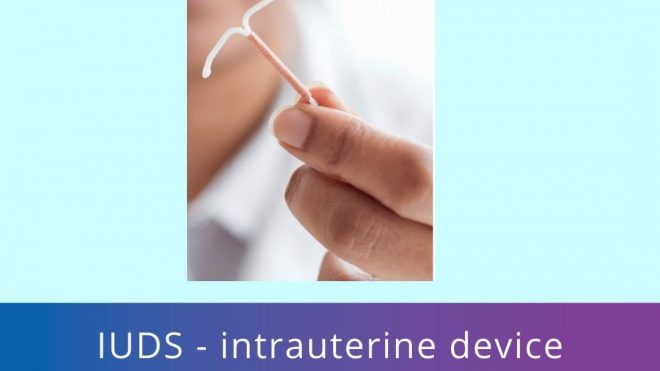An IUD (intrauterine device) is a small contraceptive device that is inserted into the uterus by a doctor or nurse.
IUDs have the following benefits:
• They are more than 98-99% effective as contraceptives
• They are safe to use if you’re breastfeeding
• They last for a long time – five years in the case of hormonal IUDs, and up to ten years for copper IUDs
• Their contraceptive effect is not affected by other medications
• They can be removed at any time by a healthcare provider
• A person’s chance of becoming pregnant returns to normal as soon as the IUD has been removed.
Two types of IUD are available in Australia – copper and hormonal.
Copper IUDs consist of fine copper wire wrapped around a plastic frame. They release a small amount of copper into the uterus which are toxic to the sperm and prevent sperm from fertilising an egg. It also affects the endometrial lining of the uterus making it unsuitable to support a fertilised egg. Copper IUDs can also be used for emergency contraception. A Copper IUD can make a woman’s periods heavier and more painful.
Hormonal IUDs release a hormone called progesterone or levonorgestrel (LNG for short) into the uterus, which works in a variety of ways to prevent pregnancy. They thicken the cervical mucous preventing sperm from entering the uterus; negatively affects sperm who progress through into the uterus; and alter the lining of the uterus making it unsuitable for implantation. The two types of hormonal IUDs available in Australia are known by their brand names, Mirena™ and Kyleena™. As the uterine endometrial lining is often very thin with a hormonal IUD, many women will eventually have very light, or even no menstrual bleeding.
Kyleena™, which has been listed on the PBS General Schedule since 2020, is the lower-dose option – it releases less than half the amount of LNG than Mirena™ – and is comparably safe and effective. The Kyleena™ IUD is smaller and therefore slightly easier to insert. As Mirena™ and Kyleena™ both contain LNG, their possible side effects are similar. The most common are persistent spotting and irregular bleeding, abdominal or pelvic pain and headaches. But as Kyleena™ contains a significantly lower dose, any side effects are likely to be less severe.
Your GP or WOGS doctor can provide information about the suitability of IUDs for you.

